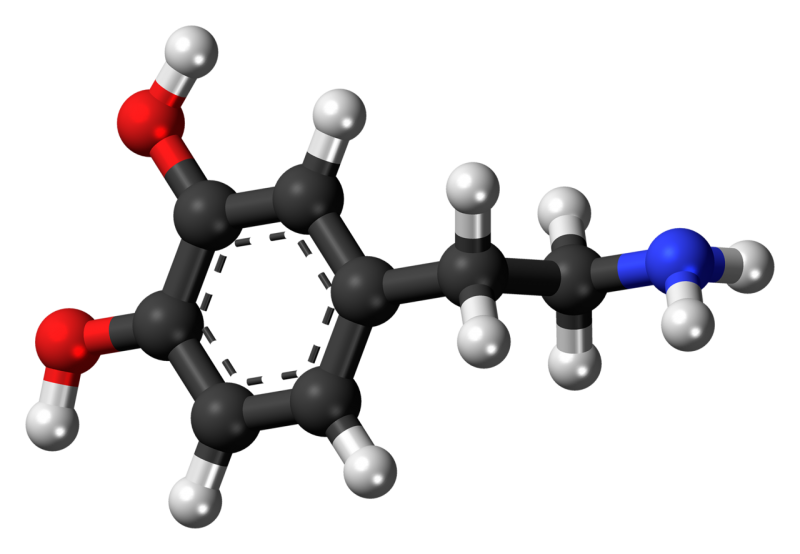That Powerball fever you're feeling has a name: dopamine

That lottery fever sweeping the country in anticipation of Saturday night's record $800 million Powerball drawing? Scientists have a name for it: dopamine.
It's the brain chemical associated with reward, pleasure and addiction. And it's digging into pockets at a maddening pace this week.
Thanks a lot, dopamine. Whether the jackpot is $8 million or $800 million, the odds of winning are stuck at a buzz-killing 1 in 292 million.
"I don't want to miss a big chance," said Javier Berec as he plunked down $10 for five tickets Friday at Hana's Bottle Shop Liquors in Santa Clara, billed as one of the California lottery's "historical lucky retailers," thanks to selling two $1 million tickets in 2011 within three months.
With $800 million up for grabs, it doesn't take a neuroscientist like Howard Fields to explain how people may be ignoring probability this week because of the way the brain processes risk and reward.
"In the brain stem of a gambler, dopamine neurons are firing very high, pushing them to put out the money, to go and buy the ticket," said Fields, a professor of neurology at the University of California, San Francisco.
During pleasurable experiences, dopamine floods the brain and urges humans to repeat the bliss-blasting behavior.
But, Fields added, the brain tends to overestimate the possibility of reward.
If you program a computer to make the same calculations, it "would never do what a person does," Fields said. "It would say, OK, I'm not going to buy a ticket until I have at least a good chance of winning."
And, of course, like any lab rat, we are more likely to take that chance as the reward - in this case, an $800 million piece of cheese - gets bigger.
"Some people will just religiously play scratchers because it's more instant gratification," Alex Traverso, spokesperson for the California lottery. But this week's Powerball has lured a horde of new customers. "When you get to $800 million, you assume everyone's playing."
Tony DeMola is one of the uninitiated who stopped by Cork'n Bottle Liquor in Concord on Friday to buy $10 in tickets. Dopamine wasn't his motivation - his wife was: He decided to add a few tickets to her birthday gift.
At Hana's Bottle Shop Liquors, store manager Ravee Patel heard all the stories from a front-row seat at the dopamine parade on Friday morning as a steady stream of customers tried their luck. The shop issues about $500 in scratch lottery winnings a day, he said, but like all lottery outlets across California on Friday, the main attraction was clear.
"A guy just bought $200 in Powerball," Patel said.
What drives customers to dig so deep in their wallets while standing at the counter? Stanford University psychology professor Brian Knutson and his colleagues recently discovered a connection between an area of the brain related to excitement, the nucleus accumbens, and another area related to caution known as the anterior insula. The weaker the connection between the two regions, the more likely people were to take a gamble similar to buying a lottery ticket.
When customers are at the cash register, "there's something about that display that is getting them motivated and psyched up," Knutson said. "And when that happens, we think dopamine is released, particularly in the nucleus accumbens."
All that dopamine might tip the balance in favor of buying a ticket - or two - overruling the more cautious part of the brain. And once people decide to play, they often spend more than they anticipated.
"Give me $15," customer Marinko Balde said at the register. As Patel handed him change, Balde hesitated. "Ah, make it $20."
Many people grinned as they imagined what they would do with the money they knew they probably wouldn't win. They frequently discussed paying off mortgages and buying future houses.
But for many people, the rush seemed to come independent of whether they won or not.
"It's just fun," said Barbara Meyers, who plays the lottery three times a week. Unlike most players, Meyers said she wouldn't want to receive the winnings in a lump sum.
"I think you might get too greedy if you take it all at once," Meyers said, adding that she would help the poor with her winnings.
Meyers' ambitions highlight one more motivation driving lottery purchasers: the gratification of helping others.
Cupertino residents Fernando Craff and his wife, Virginia, grew animated when they talked about donating the proceeds to charities in Peru, and shrugged off the long odds.
"We have to dream," Fernando said, throwing his hands out to either side in a gesture reminiscent of a Broadway final number. "You have to be positive. ... It might as well be me."
Or you. As of Friday morning, Traverso said fewer than two-thirds of the possible Powerball combinations had been sold. In other words, there's a 1 in 3 chance that the jackpot could roll over again for Wednesday's drawing.
Get ready for an even bigger dopamine rush: That jackpot could reach a mind-blowing $1 billion.
©2016 San Jose Mercury News (San Jose, Calif.)
Distributed by Tribune Content Agency, LLC.

















